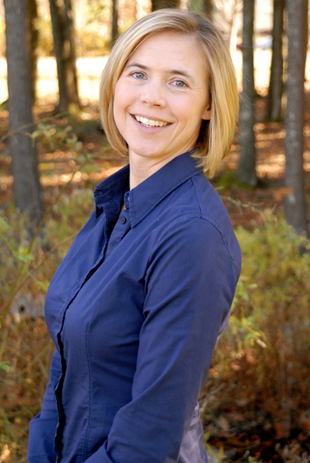Guest Post: Timberland Shares Collaborative Approach at Ethical Corporation Responsible Business Summit
By: Colleen Vien, Sustainability Director, Timberland

I recently had the pleasure to attend Ethical Corporation’s 6th Annual Responsible Business Summit in New York City. The event, touted as the premier brand-focused forum on responsible business in the U.S., brought in 90+ speakers over two days with rich dialogue focused on driving transformational change for society and industry.
Timberland was invited to contribute to a panel focused on partnership models, moderated by Paul Hoeffel, founder and director of Rain Barrel Communications. I was joined by Gina Tesla – vice president corporate citizenship at IBM, Barry Koch – associate at Rain Barrel Communications, and Scarlet Cronin – senior director of private sector partnerships at Tent. Each panelist shared examples of partnerships between their business and civil society organizations (CSOs) that address social and environmental issues.
I shared the story of Timberland’s successful partnership with the Smallholder Farmers Alliance (SFA) to plant trees and improve the social and economic livelihood of 3,400 smallholder farmers in Haiti by increasing the health and productivity of their crop land. The partnership, now fully self-sustaining, continues to plant one million trees a year and relies upon its own sustainable revenue streams vs. donations. Building on that success, we launched a second initiative with the SFA to replicate the model for cotton. Through this new effort, we will engage over 30,000 farmers, plant of over 25 million trees, and reintroduce cotton growing to Haiti after a 30-year hiatus. This also sets the stage for Timberland to evolve from being a supporter to a customer of the SFA, as we use quite a bit of cotton in our products. We’re excited about this opportunity, and received a great reaction from the crowd as well.
After the panel presentation, session attendees continued to share and learn from each other in breakout groups. The group conversations explored keys to successful partnerships and potential solutions for various partnership challenges. Members of the group I joined agreed that the most successful initiatives are structured to bring shared value to the business. Also, buy-in from senior leaders and having internal champions for a partnership are critical.
When companies assess CSOs as potential partners, there is no one right way to determine the best opportunity. Many variables play into that decision – larger CSOs may require less hands-on involvement and may produce faster results. Meanwhile, smaller CSOs that are just getting started may require more patience and involvement, as well as tolerance for the risk of working with an unproven partner. That said, there can also be great reward in helping new organizations launch if you’re willing to invest the time to make it happen. Timberland has often opted to serve as a catalyst to help new CSOs get started and it’s been exciting to watch those organizations grow and evolve over the years
Our discussion group touched on many topics and concluded with a conversation about pre-competitive collaborations and how co-investing in initiatives with others in your industry can accelerate funding and lead to systems-based changes. Such collaborations, however, can also require navigating multiple goals, objectives, and expectations, which can sometimes lead to slower activation.
Many great ideas were shared and, judging by the number of attendees who lingered after the session to continue their dialogues, I sensed that new collaborations were forming in real-time all around me.

